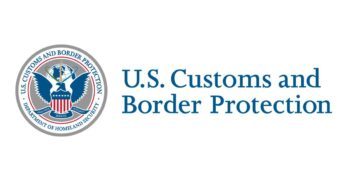In the area of international trade law, anti-dumping duties (ADD) and countervailing duties (CVD) have increasingly become a hot-button issue for the government. Collection and enforcement of ADD/CVD owed by importers is one of the core priority issues of the U.S. Customs and Border Protection (Customs or CBP). Just last year, the government enacted an enhanced reporting and enforcement process for ADD/CVD. The new Administration also just recently released an Executive Order building upon the recent law implemented.
As a brief overview, anti-dumping occurs when products found to be “dumped” by foreign companies in the U.S. market at prices which undercut U.S. industries manufacturing those same products. Additional duties are assessed on the specified products imported from these countries to help level the playing field and incentivize U.S. companies to buy domestic. Countervailing duties are imposed when a foreign government is determined to provide subsidies to its domestic companies, which then allow the companies to sell the products at prices lower than a U.S. manufacturer could sell the same merchandise. Countervailing duties are assessed to help make up for this margin and subsidy amount.
Prior to the implementation of an aggressive enforcement act recently implemented, the government had already included ADD/CVD as a priority trade issue. The Trade Enforcement Act of 2015 was the first major Customs law enacted in over 20 years. The Act addressed three main areas, the key area being anti-dumping and countervailing duty evasion. Title IV of the Act deals with anti-dumping and countervailing duty orders and is separately titled the “Enforce and Protect Act of 2015” (ENFORCE Act). CBP has a Centralized Anti-dumping/Countervailing Team that only works to target suspect importers. Per Section 411 of the ENFORCE Act, the law creates a new “Trade Remedy Law Enforcement Division” within CBP to investigate and prevent trade remedy evasion. This division is the primary point of contact for evasion allegations and facilitates the exchange of evasion information between government agencies. The serious attention paid to this issue was spurred on by a Government Accountability Office (GAO) report released in July 2016, which found that more than $2 billion was lost in uncollected ADD/CVD as of mid-May 2015.
In May 2016, CBP Commissioner Gil Kerlikowske indicated that CBP will take a tougher enforcement stance on U.S. trade laws than in the past, including aggressive application of the Enforce and Protect Act of 2015 (ENFORCE).
The current Administration is giving even more teeth to enforcement by Customs. Recently, Executive Order 13785, released on March 31, 2017, focused on additional means to enforce anti-dumping/countervailing duty laws. The Order states that importers will be assessed, and if determined to be at risk for ADD/CVD enforcement, additional imports bonds may be required. Further, as stated in the Order, “The Attorney General, in consultation with the Secretary of Homeland Security, is required to develop recommended prosecution practices and allocate appropriate resources to ensure that Federal prosecutors accord a high priority to prosecuting significant offenses related to violations of trade laws.”
Beyond the new ADD/CVD remedies being implemented by the government, the Department of Justice has begun to hone in on False Claims Act (“FCA”) (31 U.S.C. § 3729) cases involving anti-dumping/countervailing duty evasion. The FCA allows people or companies, designated a “Relator”, to file what are termed “qui tam” lawsuits against individuals or companies that directly or indirectly defrauded the Federal government. Through qui tam lawsuits, the informants or “whistleblowers” may recover triple damages on the government’s behalf. Anyone who knows of the fraud, including a competitor company may file a qui tam lawsuit. For example, in 2016, the prominent furniture store Z Gallerie LLC settled an FCA claim to the tune of $15 million due to falsely claiming its imports were not subject to an ADD order on wooden bedroom furniture from China. Enforcement of ADD/CVD orders is no longer just the province of international trade laws, but encompasses a range of federal statutes.
ADD/CVD orders cover a wide range of products. In the past, the majority of the orders focused on products originating in China. However, the environment continues to change and countries with notable increases in ADD/CVD orders include Vietnam, Korea, Turkey, Taiwan, and Indonesia. ADD/CVD orders in the last 5 years (2012-2016) for these countries represent more than 20 percent of all orders ever brought against each individual country. Taiwan and Indonesia are standout new countries, with increased orders brought in the last 5 years. Notably, orders also regularly include European countries, such as the UK, France and Germany.
The steel industry is a key area where ADD/CVD enforcement is increasing. Several orders against steel products already exist. These orders include multiple countries and include: Oil Country Tubular Goods (issued in 2014, 7 orders against 5 countries); Non-Oriented Electrical Steel (issued 2014, 8 orders against 5 countries); and Steel Nails (issued 2015, 6 orders against 5 countries). New petitions and investigations against all types of steel products are on the rise, especially as the current Administration has broadcasted its commitment to ensuring a fair playing field for the U.S. steel industry.
In this heightened enforcement arena, it is more critical than ever that an importing company be proactive in reviewing its imported products to ensure no ADD/CVD applicability, and to address such issues as soon as they arise. Voluntary disclosures to Customs are an option to avoid or mitigate penalties if it is revealed that previous shipments were in fact subject to ADD/CVD orders.
By: Jennifer Horvath, Senior Associate Attorney

























